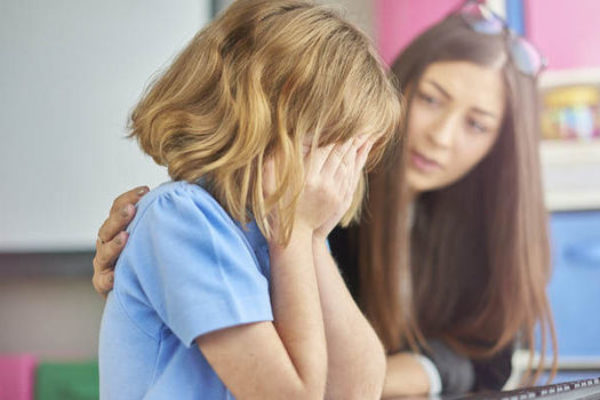In a few weeks, most children will be headed back to school.
Meanwhile, images of mothers and fathers seeking refuge and being separated from their children upon trying to enter the country along the U.S/México border have been circulating everywhere. They are on the cover of magazines and on the front page of local and national newspapers.
Small children sobbing as their parents are handcuffed. Adolescent youth held in detention centers. Mothers and fathers in anguish as they wait for answers after having their children taken away from them. These images have flooded our social media feeds and continue to be debated on the evening news even as efforts are being made to reunite families.
Not only have we seen these images and heard the stories shared on different platforms, but also have our children. While we may think that this issue does not impact our children, unknowingly we may indeed be in closer proximity to these issues than we think we are. Within our neighborhoods, churches, and other social outlets, children have friends or know of peers who have been directly or indirectly impacted by Trump’s Zero Tolerance immigration policy.
Some children and youth in our schools are themselves undocumented or they come from mixed-status families and fear the uncertainty of their futures in this country. Some children who may be very close to us may have experienced severe trauma from such separations and now live in constant fear.
As teacher educators and former classroom teachers, first and foremost we believe that all teachers as public servants should make their number one priority to ensure that all children feel safe and secure in their classrooms. Creating a safe space takes work and it starts, not by ignoring such pressing issues and pretending that the children don’t know and are not affected by them, but by opening space for dialogue in the classroom.
Above all by holding space to listen and hear children and youths’ stories, their concerns, their fears and their questions. All of our children will have stories and questions of what they have seen, heard, witnessed or experienced firsthand. We cannot and should not ignore their questions.
We need to respond to the children’s questions, no matter how uncomfortable they may make us feel. One entry point into such conversations and into responding to their concerns is through the use of children’s books that directly speak to issues of immigration, family separation and detention (See list of suggested books below).
As an important first step, children’s books can help us begin a conversation to address the root causes of their concerns and the harm that these policies and acts of violence cause within communities. Children’s books can also help us discuss the problem and all of the layers of its complexity, and also often offer possible solutions to the issue.
We need to listen with compassion and without judgement, while looking for resources to support our children and their families as we work together to learn from each others’ stories and support one another. There may be things that we are uncertain about, or answers that we cannot provide, but we need to be honest about these things with children, too.
Teachers have a moral obligation to open space in the classrooms to discuss the current political moment. This decision to address the issue is deeply rooted in teachers’ long held convictions to all children, families and communities as public servants and what we we believe to be a human issue of equity and justice.
This is not an issue where there are two sides. There is only one side, the moral side, you don’t take children away from their parents.
Tracey T. Flores is an assistant professor of language and literacy studies at The University of Texas at Austin. Luis Urrieta is the Susan B. and John L. Adams Professor of Educationat The University of Texas at Austin.
A version of this op-ed appeared in the Houston Chronicle.
To view more op-eds from Texas Perspectives, click here.
Like us on Facebook.




